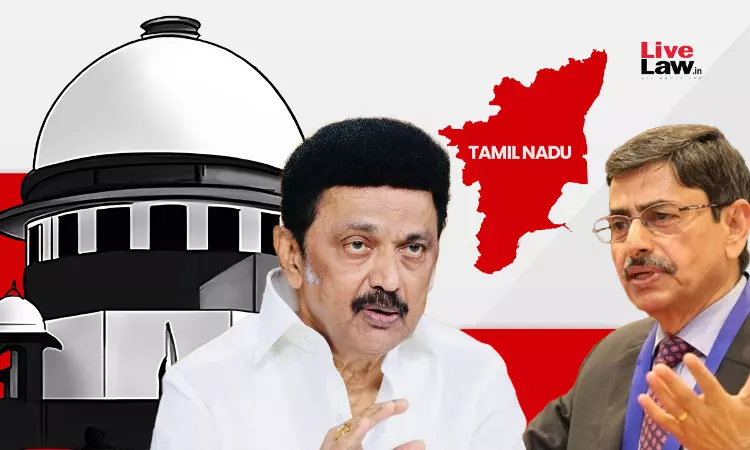Supreme Court Urges Tamil Nadu Governor & Chief Minister To Have Dialogue To Resolve Deadlock Over Bills
Padmakshi Sharma
13 Dec 2023 4:54 PM IST

Next Story
13 Dec 2023 4:54 PM IST
The Supreme Court on Wednesday (December 13) urged the Chief Minister and the Governor of Tamil Nadu to have an open dialogue to resolve the deadlock over the passing of the bills.A bench comprising Chief Justice of India DY Chandrachud, Justice JB Pardiwala and Justice Manoj Misra was hearing a writ petition filed by the State of Tamil Nadu against the Governor's delay in granting assent to...
